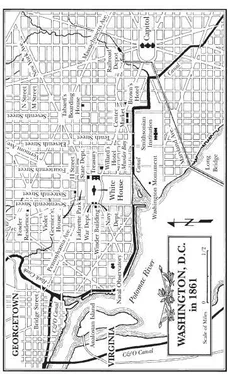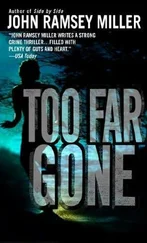John Miller - The First Assassin
Здесь есть возможность читать онлайн «John Miller - The First Assassin» весь текст электронной книги совершенно бесплатно (целиком полную версию без сокращений). В некоторых случаях можно слушать аудио, скачать через торрент в формате fb2 и присутствует краткое содержание. Жанр: Исторический детектив, на английском языке. Описание произведения, (предисловие) а так же отзывы посетителей доступны на портале библиотеки ЛибКат.
- Название:The First Assassin
- Автор:
- Жанр:
- Год:неизвестен
- ISBN:нет данных
- Рейтинг книги:3 / 5. Голосов: 1
-
Избранное:Добавить в избранное
- Отзывы:
-
Ваша оценка:
- 60
- 1
- 2
- 3
- 4
- 5
The First Assassin: краткое содержание, описание и аннотация
Предлагаем к чтению аннотацию, описание, краткое содержание или предисловие (зависит от того, что написал сам автор книги «The First Assassin»). Если вы не нашли необходимую информацию о книге — напишите в комментариях, мы постараемся отыскать её.
The First Assassin — читать онлайн бесплатно полную книгу (весь текст) целиком
Ниже представлен текст книги, разбитый по страницам. Система сохранения места последней прочитанной страницы, позволяет с удобством читать онлайн бесплатно книгу «The First Assassin», без необходимости каждый раз заново искать на чём Вы остановились. Поставьте закладку, и сможете в любой момент перейти на страницу, на которой закончили чтение.
Интервал:
Закладка:
“No, but he was comin’ for me,” said Portia. “I was waitin’ in the stables, just like you told me. I heard somethin’ and thought it was you. But it was him. He grabbed me, and then you showed up just in time.”
“He’s gone now, but we’ll see more of him. He came to Mr. Bennett’s home in the city most every day. It’s like he’s Mr. Bennett’s son.”
“I’m frightened, Grandpa. What if he comes after me again?”
“I don’t wanna scare you, Portia, but you know white folks. They like to have their way with us.”
“Why do we let ’em? There are more of us. We could take over this place and-”
“Stop talkin’ that way right now,” said Lucius. “It wouldn’t work. It would get us killed.”
Lucius put his arms around Portia. If Hughes insisted on having his way with her, there was no guarantee he could stop it. He was not sure talking to Bennett would solve the problem either. That might even make it worse. Bennett’s new affection for Hughes had grown so strong that Lucius thought he might even give Portia away if he knew of the young man’s interest.
These circumstances only added to his resolve. He led Portia into the stables. They sat down on overturned buckets.
“I’m sorry Mr. Hughes found you. If I had known about him lurkin’ around, I wouldn’t have asked you to meet me here. But what I got to say is very important.”
Lucius stood up and wandered around the stables for a minute, sticking his head in the stalls to make sure they were truly alone. Then he returned to Portia.
“You heard of President Lincoln?” he asked.
“Everyone says he’s gonna set us free.”
“That’s what I’ve been hearin’ too.”
“So what about him?”
“I want you to deliver something to him.”
“What?”
“I’m serious. I want you to deliver something to him.”
Portia was confused. “What do you mean?”
Lucius reached inside his pocket and pulled out a picture. He handed it to her. It showed a white man standing in profile. The image was a little blurry, but Portia could make out the man’s features. She noticed the half-missing ear.
“Who’s this?”
“Mr. Bennett and Mr. Hughes call him ‘Mazorca.’ They’ve hired him to kill Abe Lincoln.”
“How do you know?”
“I overheard them talkin’ about it in Charleston, and then this man came by. He’s gonna try to murder the president.”
“And you want me to take this picture all the way to Washington?”
“I would do it myself, Portia, but I’m too old. It’s gotta be someone young.”
“Why me? Why not one of my brothers?”
“I thought of that. But they ain’t as clever as you, and you’re gonna need wits for this. They’d also be missed around here sooner than you. The dogs would be runnin’ on their trail by the middle of the morning. Also, you’re the only one of my grandchildren who’s been to Charleston.”
“Charleston? I thought you wanted me to go to Washington.”
“I know someone in Charleston who can help you get there.”
“Why didn’t you take care of it while you were still there?”
Lucius grimaced. “Maybe that would have been best. At first, I had the picture and wasn’t sure what to do with it. Then I was thinkin’ that maybe I’d just forget about it. Why risk gettin’ caught? Comin’ up to the house today, though, seeing you and all the little ones-it convinced me that something had to be done.” He paused and looked straight at his granddaughter. “You’re the one to do it, Portia.”
“Can I think about it?”
“No. There ain’t no time. That man could be in Washington already. I need to know right now if you’re gonna do it or if I gotta find someone else.”
Portia sat in silence. She stared at the picture, and then her grandfather. She knew he would not ask her to do something so extraordinary unless it really mattered.
“I don’t know,” she said. “I don’t wanna leave this place. There are so many people I’d miss. I might never see any of you again.”
“I know that, Portia. But this is more important than any single person.”
She was not sure what to say. Then she thought about Hughes, and so she said the one thing that came into her head: “Okay.”
“You’ll do it then?”
“Yes.”
“Thank you, Portia. You’re a brave young woman. I knew you wouldn’t let me down. Meet me here tomorrow night, when there’s no more light in the sky. Be ready to go.”
NINE
THURSDAY, APRIL 18, 1861
The big, black ball rested on top of its pole above the Naval Observatory’s dome. That meant nobody was late. At least not yet, thought Rook, as he walked the final block toward his daily meeting with Springfield and Clark. For several weeks, they had gathered at the foot of the observatory, right by the river at the corner of New York Avenue and Twenty-third Street. They were supposed to begin promptly at noon, a time marked by the ball of black canvas, which was as wide as a doorway. It dropped at twelve, every day and without error. Across the city, people set their clocks by its fall.
Rook watched Springfield approach. As the sergeant came near, Rook nodded a greeting. “Where’s Corporal Clark?” he asked.
“He’ll be here,” replied Springfield.
The black ball twitched and began its slow descent. Just then, Clark turned a corner and came into view on New York Avenue. He was walking at a swift pace. Springfield chuckled as Rook made a show of gazing up at the ball and then at Clark, who got the message immediately and broke into a trot. By the time he joined his companions, the ball was resting on the top of the observatory’s dome. “Sorry, sir,” he said, looking up at the ball.
“Instead of being sorry, be on time,” scolded Rook, who then turned to Springfield. “If you let a subordinate break little rules, it won’t be long before he breaks big ones.”
This was more than Rook could say for himself. Here he was, meeting with Springfield and Clark-both good men-to discuss activities that his own superior officer had told him to stop.
“Sergeant, what’s the latest from Lafayette Park?” he asked.
Like Clark, Springfield was dressed in plain clothes rather than his blue uniform. He had been posted to Lafayette Park, across Pennsylvania Avenue from the White House. Instead of keeping an eye on the president, however, Rook had ordered him to watch over the houses that lined the park. These were some of the most prominent addresses in the city-James and Dolley Madison once had lived there, and now the neighborhood was home to everyone from Secretary of State William Seward to Massachusetts senator Charles Sumner. Rook had told Springfield to pay close attention to Sumner’s residence. Among Southern radicals, perhaps only Lincoln was more scorned. Just five years earlier the senator had been assaulted on the floor of the Senate by a South Carolina congressman who objected to one of Sumner’s abolitionist speeches. Southerners hailed the attacker as a hero. It took Sumner more than three years to recover from his injuries.
Yet protecting Sumner was not Springfield’s only objective, or even the main one. Rook actually had told Springfield to spend most of his time watching over the neighborhood’s Southerners-his primary duty was not protection, but surveillance. Rook wanted the sergeant to determine if any of the secessionists in the neighborhood were more than mere agitators. So far, he had not experienced a great deal of success. A single man covering several city blocks can accomplish only so much, and Springfield’s most interesting observations up to now involved a couple of households packing up and departing across the Potomac. That was the content of his report on this day as well: yet another family with Southern loyalties was making plans to move away. Alarmed by Lincoln’s plan to call up troops from the North, they decided to leave before it was too late.
Читать дальшеИнтервал:
Закладка:
Похожие книги на «The First Assassin»
Представляем Вашему вниманию похожие книги на «The First Assassin» списком для выбора. Мы отобрали схожую по названию и смыслу литературу в надежде предоставить читателям больше вариантов отыскать новые, интересные, ещё непрочитанные произведения.
Обсуждение, отзывы о книге «The First Assassin» и просто собственные мнения читателей. Оставьте ваши комментарии, напишите, что Вы думаете о произведении, его смысле или главных героях. Укажите что конкретно понравилось, а что нет, и почему Вы так считаете.












